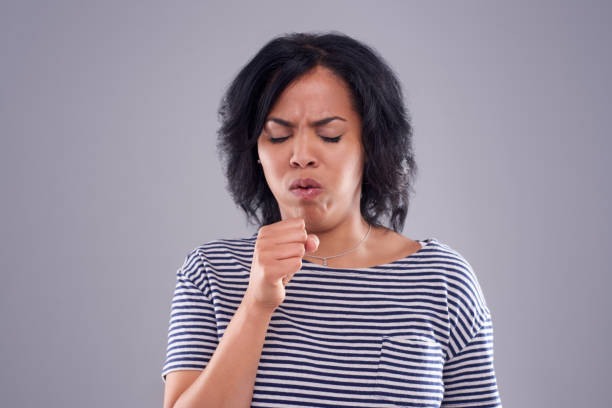Dry cough is a common respiratory symptom that can be caused by various underlying conditions, ranging from mild to severe. A dry cough is a type of cough that does not produce any phlegm or mucus and is usually accompanied by a scratchy or sore throat.
Some of the most common symptoms of dry cough include:
Persistent coughing: The most obvious symptom of a dry cough is a persistent urge to cough. This can be irritating and can make it difficult to concentrate or sleep.
Sore throat: A dry cough often causes a sore throat, making it painful to swallow or talk.
Chest discomfort: Some people may experience chest discomfort or tightness when coughing.
Shortness of breath: In severe cases, a dry cough can cause shortness of breath, especially in those with underlying respiratory conditions.
Fatigue: Prolonged coughing can be exhausting and can lead to fatigue.
The causes of dry cough can be divided into two categories: acute and chronic. Acute dry coughs are usually caused by colds, flu, or other respiratory infections and typically last for a week or two. Chronic dry coughs, on the other hand, persist for more than three weeks and can be a symptom of an underlying condition such as asthma, allergies, or lung disease.
Treatment for dry cough depends on the underlying cause. If a dry cough is caused by a viral infection, it will usually resolve on its own within a week or two. However, if the cough persists or is accompanied by other symptoms, medical treatment may be necessary.
Here are some effective treatments for dry cough:
Over-the-counter cough medicines: Over-the-counter cough medicines such as decongestants, expectorants, and cough suppressants can help relieve the symptoms of dry cough. However, it is important to read the label carefully and follow the recommended dosage.
Steam therapy: Inhaling steam can help soothe the throat and relieve dry cough. Simply boil water and inhale the steam through your mouth for 10-15 minutes.
Hydration: Staying hydrated is important for preventing and treating dry cough. Drinking plenty of water, herbal teas, and other clear fluids can help relieve symptoms.
Saltwater gargle: Saltwater gargles can help soothe a sore throat and relieve dry cough. Simply dissolve a teaspoon of salt in a cup of warm water and gargle for 30 seconds.
Avoid irritants: Avoiding irritants such as smoke, dust, and pet dander can help prevent dry cough.
Medications for underlying conditions: If a dry cough is caused by an underlying condition such as asthma or allergies, medications such as bronchodilators or antihistamines may be prescribed.
In conclusion, dry cough is a common respiratory symptom that can be caused by various underlying conditions. If a dry cough persists for more than a week or is accompanied by other symptoms, it is important to see a doctor for proper diagnosis and treatment. Effective treatments for dry cough include over-the-counter cough medicines, steam therapy, hydration, saltwater gargles, avoiding irritants, and medications for underlying conditions.

 Home
Home Health
Health Diet & Nutrition
Diet & Nutrition Living Well
Living Well More
More












